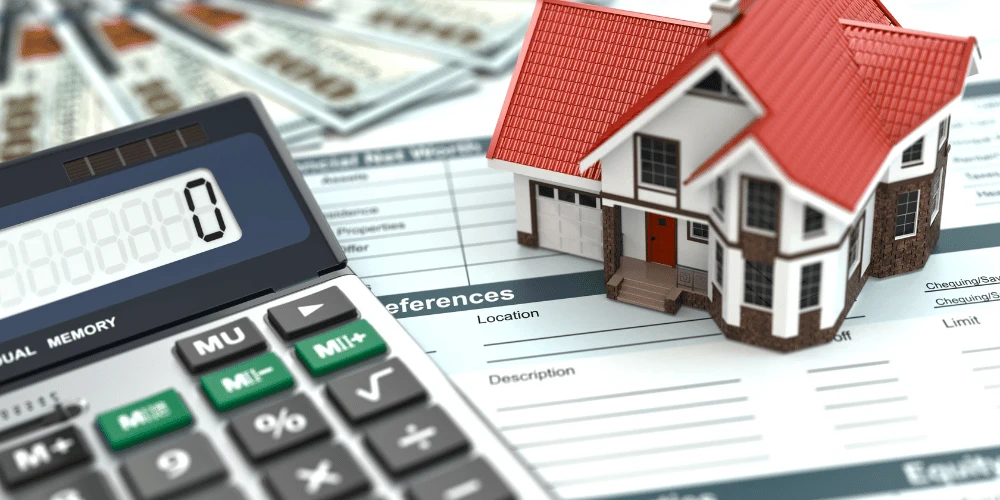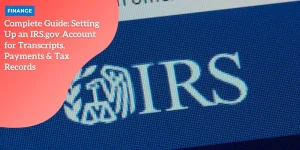How to Create a Financial Emergency Kit: A Step-by-Step Guide for When Disaster Strikes
Understanding the Financial Go Bag
Definition and Importance
A financial go bag is a curated collection of essential financial documents and information, designed to be quickly accessed in case of an emergency.
Anúncios
Unlike a traditional emergency kit stocked with items for physical survival, a financial go bag focuses on the essentials needed to manage your financial affairs during a crisis.
This kit can be crucial in minimizing the financial disruptions that often accompany disasters, such as natural calamities or sudden evacuations.
How It Differs from a Regular Emergency Kit
While a regular emergency kit might include food, water, flashlights, and first aid supplies, a financial go bag contains critical documents and information specific to your financial well-being.
Anúncios
Your physical safety is paramount, but being prepared with financial essentials can drastically reduce stress and confusion during a bad situation.
A comprehensive financial go bag aims to ensure you have everything you need to handle urgent financial tasks, like accessing funds, proving your identity, or handling insurance claims.
The Crucial Role of Preparation
Preparation is key to safeguarding your financial security during emergencies.
Anúncios
Disasters can strike with little warning, leaving you with limited time to gather necessary documents.
Having these items ready in a financial go bag ensures you can evacuate quickly and still have access to needed information.
Ensuring all your important financial documents are organized and stored safely means you won’t have to frantically search for them when time is of the essence.
 Prepare for any situation
Prepare for any situation
Moreover, being prepared helps to avoid the potential downfall of your financial stability post-disaster.
Keeping a financial go bag highlights the importance of readiness in crisis management, providing peace of mind that you can handle unexpected events with minimal disruption.
This proactive approach not only helps you manage immediate financial needs but also aids in quicker recovery and continuity, reinforcing the significance of having a well-prepared financial go bag.
Having a system in place for maintaining essential information can ensure that even in the scenario of total upheaval, you have what you need to start the process of getting back to normal.
Up next, let’s delve into the specific essential documents and identification you should include in your financial go bag.
Essential Documents and Identification
When it comes to your financial go bag, having the right documents is crucial.
These documents can provide proof of identity, residence, and other essential information during an emergency.
Here’s what you should include:
Original Documents
First and foremost, ensure that your financial go bag contains the original versions of the following documents:
- 💰 Social Security cards: These are essential for identification and various applications and processes.
- 💰 Birth certificates: These provide proof of age and citizenship, which can be required for many forms and services.
- 💰 Passports: Necessary for identification and travel, passports are a must-have in any emergency situation.
Photocopies
It’s also a smart idea to have photocopies of certain documents.
This serves as a backup in case the originals are damaged or inaccessible:
- 💰 Driver’s license: Since you generally carry your driver’s license with you, having a photocopy in your go bag ensures you have a spare form of identification.
- 💰 Utility bills: These can serve as proof of residence, which might be necessary if you’re dealing with property access or insurance claims.
Estate Planning Documents
Don’t forget the critical estate planning documents that can help smooth out legal and medical issues if they arise:
- 💰 Trusts: Documents outlining asset management and distribution should be kept accessible.
- 💰 Wills: Ensure that your last will and testament is included, to prevent disputes and ensure your assets are divided as per your wishes.
- 💰 Medical directives: Include any documents that outline your medical treatment preferences to guide healthcare providers in case you’re unable to do so yourself.
By gathering these essential documents and keeping them in your financial go bag, you’ll be better prepared to handle any emergency situation confidently and swiftly.
This preparation not only provides peace of mind but also ensures that you can manage legal, medical, and financial matters even during a crisis.
Moving forward, keeping these documents safe and updated is equally important.
With proper preparation, your financial security will be one less thing to worry about during a disaster.
Financial Account Information
When disaster strikes, having quick and easy access to essential financial information can be crucial.
This chapter will guide you through assembling a comprehensive financial section for your Financial Go Bag, helping ensure you’re prepared for any eventuality.
Comprehensive List of Account Numbers
Your Financial Go Bag should contain a detailed list of account numbers for various financial institutions:
- Banks: Including checking, savings, and any other types of accounts.
- Insurance Companies: For health, home, auto, and life policies.
- Brokerages: Any investment and retirement accounts.
By consolidating this information, you can avoid the scramble to find your details in an emergency.
Make sure to update this list regularly to reflect any changes.
Customer Service Contact Information and Online Passwords
Alongside your account numbers, include the customer service contact information for each institution.
This should encompass:
- 💰 Phone numbers
- 💰 Email addresses
- 💰 Physical addresses (if applicable)
Moreover, prepare a secure document that contains your online passwords for these accounts.
Digital access can be as critical as physical access, especially if you need to manage finances remotely.
However, ensure you store this in a secure manner within your go bag to avoid compromising your sensitive information.
List of Important Financial Roles and Responsibilities
Another key inclusion is a record of important financial roles and responsibilities.
This encompasses:
- 💰 Executors of your estate: The individual responsible for managing your estate after your passing.
- 💰 Brokers or bankers: Includes details of any advisors you rely on for financial guidance.
- 💰 Medical directives designees: Individuals named in your medical directives.
Keeping a detailed record ensures that those who need to take action in your absence know exactly what their responsibilities are.
By maintaining an organized and up-to-date Financial Go Bag, you can manage unexpected situations more efficiently, ensuring continued access to your crucial financial resources.
Next, let’s consider the documents and resources you need for safeguarding your property and ensuring you have the support you need from insurance policies.
Insurance and Property Documentation
Insurance Policies and Contact Information
One of the key sections of your Financial Go Bag should include all your insurance policies.
This includes health, homeowners, auto, life, and any other relevant insurance documents.
Having copies of these policies at hand is crucial during an emergency when you may need to file claims quickly.
Be sure to have:
- 💰 Copies of each insurance policy with the policy numbers.
- 💰 Contact information for the insurance companies or your agents.
- 💰 Customer service phone numbers.
- 💰 Key details such as policy coverage limits and premium amounts.
Documentation of Home Contents
To effectively deal with insurance claims related to your home and its contents, it’s wise to keep a detailed record.
This can help in cases where you need to prove ownership, value, and damage of items. Follow these steps:
- 💰 Regularly document your home’s contents with photos or a video walk-through.
- 💰 Create a list detailing items and their estimated values.
- 💰 Update this documentation periodically to ensure it includes new purchases.
Property-Related Documents
Your Financial Go Bag should also have documents related to properties you own or rent.
This helps ensure that you can prove ownership or tenancy and manage your property obligations during an emergency.
Make sure to include:
- 💰 Copies of property deeds or lease agreements.
- 💰 Contact information for your mortgage company or landlord.
- 💰 Recent property tax statements.
- 💰 Any recent home inspection or appraisal reports.
By organizing these insurance and property documents, you ensure you have quick access to necessary information to protect and manage your assets during an emergency.
Remember, preparation is key to mitigating challenges in times of crisis.
Next, we’ll explore how to keep emergency cash and access items ready to go at a moment’s notice.
Emergency Cash and Access Items
When faced with an emergency, having quick access to essential financial resources is critical.
This chapter breaks down the importance of prepping emergency cash and access items to ensure you’re financially ready for any unforeseen situation.
Recommended Cash Amount
It’s highly recommended to keep between $500 and $1000 in cash within your financial emergency kit.
This cash serves as a crucial safety net in scenarios where ATMs are inaccessible, or electronic payments are down.
During disasters, cash can be indispensable for acquiring immediate necessities like food, water, and fuel.
Extra Keys
Keep extra keys in your financial go bag for all the essential locks in your life, including:
- 💰 Vehicles
- 💰 Home entries
- 💰 Secondary properties like vacation homes or storage units
This ensures that you maintain access to your transportation and property no matter what happens.
Losing access because of misplaced or unobtainable keys during an emergency can compound an already stressful situation.
One Checkbook
Including a checkbook in your go bag is another prudent measure.
While the use of checks might seem old-fashioned, they can be lifesavers when electronic payments systems are down.
They allow for you to cover emergency expenses when cash or digital payments aren’t viable options.
Proper Storage Solutions
To maintain the integrity of these items:
- 💰 Use a waterproof and fireproof storage bag or pouch.
- 💰 Store your kit in a safe but accessible place within your home.
- 💰 Regularly check to ensure all items are in good condition and replace any expired or damaged contents.
Keeping these items handy and in good condition ensures that you are prepared for swift action in an emergency, preserving access to crucial assets and documentation.
Transition to Next Topic
Now that we’ve covered the essentials of managing emergency cash and access items, let’s turn our attention to the importance of proper storage and maintenance practices, ensuring that all your critical documents and financial resources remain secure and in good condition.
Storage and Maintenance
When it comes to creating a Financial Go Bag, where and how you store it is just as important as what you include.
Proper storage and regular maintenance will ensure your vital documents and resources remain secure and accessible.
Waterproof and Fireproof Storage Solutions
One of the primary concerns is protecting your Financial Go Bag from potential hazards like water and fire.
Investing in high-quality, waterproof, and fireproof storage solutions is crucial. Consider using:
- 💰 Fireproof Safes: These are designed to withstand high temperatures and protect the contents inside. Look for safes with a minimum one-hour fire rating.
- 💰 Waterproof Bags or Pouches: Even if your items are in a fireproof safe, additional waterproof protection can safeguard against flooding or water damage from firefighting efforts.
Important documents should be placed in sealed waterproof bags before being stored in your safe.
This double protection ensures the integrity of your documents under nearly any circumstance.
Accessible Location Recommendations
The location of your Financial Go Bag is another critical factor.
It should be easy to access quickly during an emergency. Here are some suggestions:
- 💰 Home Safes: A fireproof and waterproof safe placed in a discreet yet easily accessible area of your home is ideal.
- 💰 Portable Lockboxes: If you need to evacuate rapidly, a smaller, portable lockbox can be advantageous. These should also be fireproof and waterproof.
- 💰 Multiple Locations: Keeping backups in a secondary location, such as a trusted family member’s home or a secure storage unit, ensures you can access your documents if you cannot return home.
Avoid placing your Financial Go Bag in hard-to-reach places, such as the attic or deep storage, where they might be forgotten or difficult to retrieve quickly.
Regular Maintenance and Updating of Documents
Maintaining and updating your Financial Go Bag is essential for its effectiveness.
Financial situations and important documents can change over time, so regular updates are necessary:
- 💰 Bi-Annual Checks: Set a reminder to review and update your Financial Go Bag every six months. Ensure all information, such as account details, contact numbers, and passwords, is current.
- 💰 Life Changes: Whenever you experience a significant life change—like marriage, the birth of a child, or a change in insurance policies—update your documents immediately.
- 💰 Document Integrity: Regularly check for any signs of deterioration in your documents, despite waterproof and fireproof storage. Replace any compromised materials promptly.
Having an organized and up-to-date Financial Go Bag can be a lifesaver in emergencies, providing you the peace of mind that your financial security is protected no matter what.
Remember, staying proactive in protecting your financial assets through proper storage and regular maintenance of your Financial Go Bag can greatly reduce stress and financial loss during a disaster.
Now that your Go Bag is ready, the next important step is understanding how to manage your medical information for emergencies.





